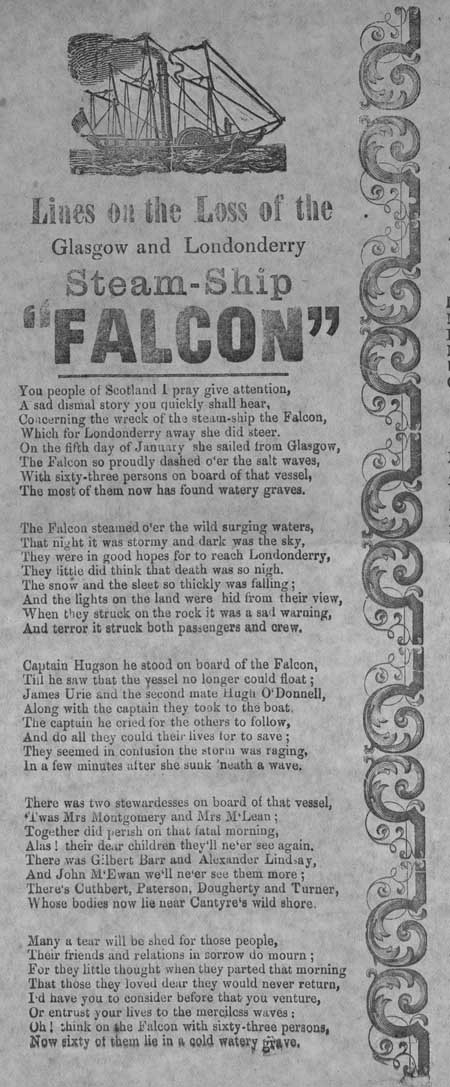Commentary
Verse 1: 'You people of Scotland I pray give attention, / A sad dismal story you quickly shall hear, / Concerning the wreck of the steam-ship the Falcon, / Which for Londonderry away she did steer. / On the fifth day of January she sailed from Glasgow, / The Falcon so proudly dashed o'er the salt waves, / With sixty-three persons on board of that vessel, / The most of them now has found watery graves.' Shipwrecks were far more common in the eighteenth and nineteenth centuries than they are today, and poems or songs were sometimes written as memorials to the vicitms. In this example some of the lost passengers are referred to by name, with a certain degree of familiarity. It may be that the author obtained the names from passenger lists, or alternatively, the ballad may have been written, or commissioned, by a friend or relative of some of the dead. Early ballads were dramatic or humorous narrative songs derived from folk culture that predated printing. Originally perpetuated by word of mouth, many ballads survive because they were recorded on broadsides. Musical notation was rarely printed, as tunes were usually established favourites. The term 'ballad' eventually applied more broadly to any kind of topical or popular verse.
View Transcription | Download PDF Facsimile
|
 |
shelfmark: L.C.Fol.178.A.2(076)
 View larger image
View larger image
|


